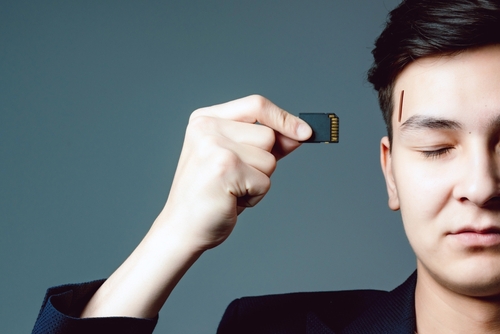
Elon Musk, the visionary behind SpaceX and Tesla, is once again pushing the boundaries of technology with his latest venture, Neuralink. The company aims to treat conditions such as paralysis and blindness by linking human brains to computers using microchips. This ambitious project has reportedly garnered interest from thousands of potential volunteers willing to participate in experimental human trials.
Neuralink’s initial focus is on aiding individuals suffering from severe degenerative brain disorders like ALS. However, the technology’s potential applications could extend far beyond medical treatments in the future. Despite the promise of this groundbreaking technology, it has also sparked controversy and skepticism among neuroscientists and other experts.
YOU WILL GET THE BRAIN CHIP SURGERY
YOUR MIND WILL BE A MONITORED JAIL CELL
YOUR DREAMS WILL BE FULL OF ADVERTISEMENTS BASED ON YOUR FEARS
YOUR PLEASURE CIRCUITS WILL BE PRECISELY STIMULATED
YOU WILL BE HAPPY pic.twitter.com/6fNUeJtIHk
— 𝓓𝖗. 𝓥𝖔𝐱 𝓞𝖈𝖚𝖑𝖎 (@Vox_Oculi) November 8, 2023
The process involves removing a portion of the patient’s skull to implant the chip, which will then interpret signals produced in the brain and relay information to devices via Bluetooth. The goal is to enable participants to control a computer cursor or a keyboard using just their thoughts. While this may sound like science fiction, thousands of people have reportedly expressed interest in participating in these trials.
However, the road to human trials has not been smooth. Safety concerns, particularly regarding the lithium battery of the device, the possibility of the implant’s wires migrating within the brain, and the challenge of safely extracting the device without damaging brain tissue, initially hindered approval for human trials. The US Food and Drugs Administration (FDA) eventually granted approval in May, although it did not disclose how its initial concerns were resolved.
Elon when his handlers activate his brain chip and trigger his monarch programming in the morning. pic.twitter.com/HSnqCa7XRB
— ★🜁 𝐌𝐀𝐑𝐊🕊️★ (@thematrixwizard) November 8, 2023
Despite these challenges, Musk has grand ambitions for Neuralink. He envisions the technology treating conditions such as obesity, autism, depression, and schizophrenia, and even facilitating web browsing and telepathy. However, experts caution that even if the device proves safe for human use, it could take more than a decade for Neuralink to secure clearance to commercialize it.
Critics argue that the brain implants will require extensive testing to overcome technical and ethical challenges before they can become widely available. They also point out that Neuralink, founded in 2016, has repeatedly overestimated the speed at which it can deliver on its promises. Initially, the company wanted to start inserting chips into humans in 2020, but this timeline has been pushed back multiple times.
Despite these setbacks, Musk remains undeterred. He has reportedly urged Neuralink to accelerate its pace, even as rival brain-computer startups Synchron and Onward have already begun human trials. This competitive pressure underscores the high stakes and rapid pace of innovation in this emerging field.
In conclusion, while Neuralink’s technology holds immense potential, it also raises significant ethical and safety concerns. As we stand on the precipice of this new frontier in human-computer interaction, it is crucial to proceed with caution, ensuring that the pursuit of technological advancement does not compromise human safety or dignity.











